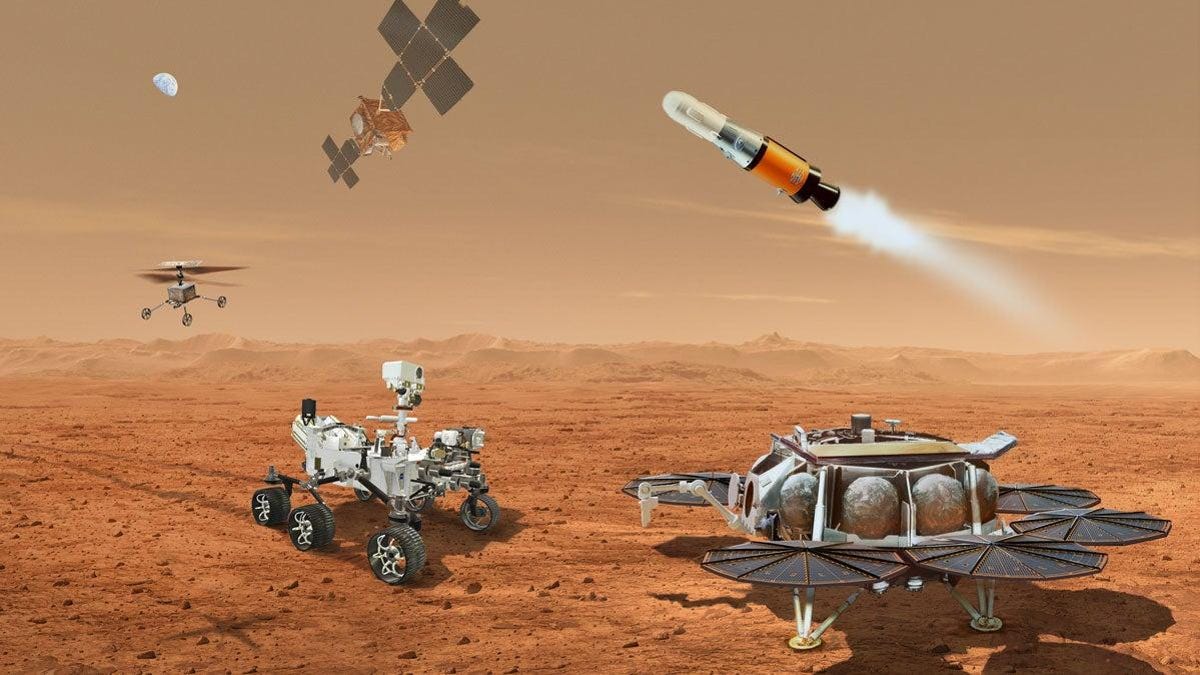
NASA is likely to face some serious money issues in the upcoming year that could affect the space agency’s science program, but not its Artemis Moon plans. At the same time, NASA’s wildly expensive Mars Sample Return mission is now under some very serious Senatorial scrutiny, with its future potentially in doubt.
The Senate Appropriations subcommittee responsible for overseeing NASA’s budget revealed its proposed NASA budget for 2024, allocating $25.367 billion towards the space agency. The spending bill grants NASA a slightly tighter budget than the $25.384 billion the agency received in 2023 and a significant cut from the $27.2 billion requested by the Biden Administration for the upcoming fiscal year.
Advertisement
NASA officials had feared the threat of budget cuts due to the Fiscal Responsibility Act, which was signed into law in June in an effort to suspend the debt ceiling by capping government spending for 2024 at the same level it was at for 2023. Before the spending cap legislation even went into effect, NASA Administrator Bill Nelson described the foreseeable effects of the bill as a “disaster.”
The space agency has major plans ahead, from landing humans on the Moon to returning the first ever samples from another planet. Those plans are not only expensive but have already gone way over budget.
Advertisement
Advertisement
A recent report by the office of NASA’s inspector general found that the Space Launch System (SLS) rocket, designed to return humans to the Moon, cost the space agency $6 billion more than its original budget. Still, it’s clear that Congress remains fully dedicated to NASA’s quest to land astronauts on the Moon in order to serve national interests. As a result, the Artemis program received the requested $7.971 billion as part of the 2024 budget, around a half a billion increase from the $7.469 billion it received in 2023.
The Senate was not as generous towards NASA’s other massive project, Mars Sample Return (MSR). The new spending bill allocated $300 million towards the mission aimed at returning rock samples from Mars, a much smaller stack of cash than the requested $949 million for 2024 and the $822 million MSR received in 2023.
“The Committee is alarmed that despite Congress providing the full request for this mission in prior years for a total of [$1.739 billion], the expected launch schedule continues to slip and the increasing fiscal and human resources devoted to MSR is causing NASA to delay other high priority missions,” a report by the senate committee read.
Mars Sample Return is one of the most complex missions the space agency has ever attempted, and involves a fleet of spacecraft, including an orbiter, lander, two helicopters, and a rocket, that will be assembled and sent to the Red Planet. In 2020, NASA and the European Space Agency estimated that the mission would require at least $7 billion in total. There are concerns, however, that MSR would far surpass those initial numbers.
Advertisement
In April, NASA Administrator Bill Nelson revealed that the mission would need an additional $250 million in the current fiscal year, plus another $250 million in 2024, in order to stay on track for launch in 2028. The space agency is setting up a second independent review board to oversee Mars Sample Return in an effort to keep the mission on time and on budget
In its report, the Senate subcommittee directed NASA to submit a year-by-year funding profile for MSR within the $5.3 billion lifecycle cost outlined in the 2022 planetary science Decadal Survey. If NASA is unable to do so, it could face mission cancellation, according to the report.
Advertisement
The Mars Sample Return mission is getting a portion of the total funding for science. The Biden Administration had requested $8.26 billion for science programs in the 2024 budget while the House recommends $7.38 billion instead.
NASA has already had to make some cuts for the original budget request for 2024, namely suspending work on the Geospace Dynamics Constellation, a group of satellites designed to study Earth’s upper atmosphere. Other missions have also suffered as a result of budgeting concerns, such as NASA’s VERITAS mission to Venus, which was delayed indefinitely. In its report, the subcommittee instructed NASA to provide a national budget profile and schedule for VERITAS.
Advertisement
Although the spending bill is not set in stone yet, it does offer some ominous clues as to the Senate’s views on NASA’s budget and its willingness to bet on the space agency’s Artemis program while other programs with similar cost overruns face a much higher level of scrutiny.
For more spaceflight in your life, follow us on Twitter and bookmark Gizmodo’s dedicated Spaceflight page.
Services Marketplace – Listings, Bookings & Reviews